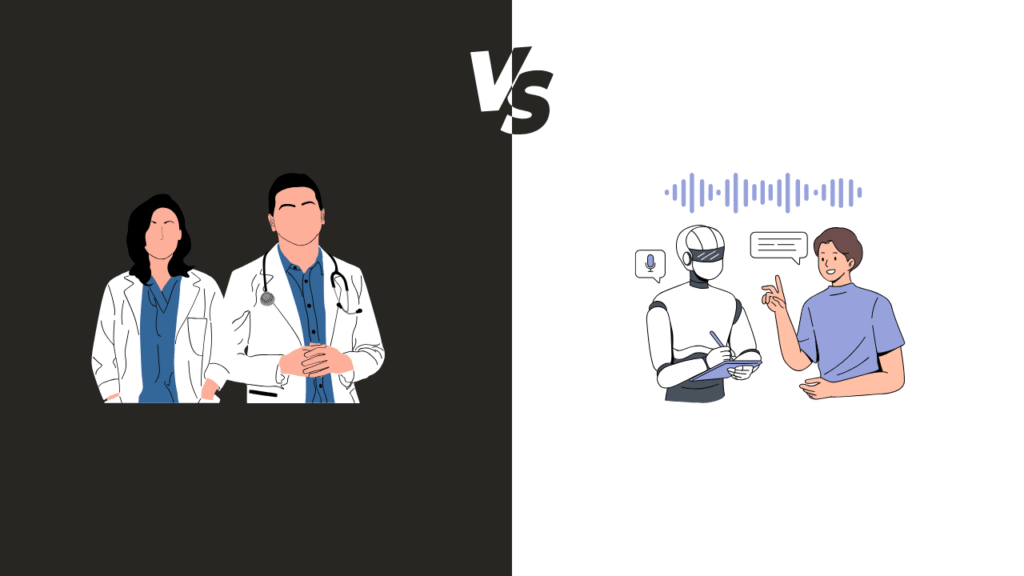Cognitive assessment plays a crucial role in evaluating how the brain processes information, solves problems, remembers details, and adapts to challenges. From diagnosing neurological conditions to identifying learning difficulties, accurate assessment is essential. Over the years, the field has shifted from paper-based tests to advanced, AI-powered systems. The debate over AI vs traditional cognitive assessment methods has grown, as both offer unique benefits and limitations that shape how we understand human cognition.
Understanding Cognitive Assessment
Cognitive assessment is a structured process to measure mental functions such as memory, attention, reasoning, language skills, and executive functioning. These evaluations serve various purposes, including:
- Diagnosing neurological disorders like Alzheimer’s or dementia
- Identifying learning disabilities in children and adults
- Monitoring recovery from brain injuries
- Guiding educational and workplace performance improvement
Whether done through AI vs traditional cognitive testing, the aim remains the same: to gather reliable insights into brain health and mental performance.
Traditional Cognitive Assessment Methods
Traditional cognitive assessments rely on standardized tests administered in person by trained professionals. Examples include:
- Wechsler Adult Intelligence Scale (WAIS)
- Mini-Mental State Examination (MMSE)
- Montreal Cognitive Assessment (MoCA)
These tests use paper-and-pencil formats, structured questionnaires, and direct observation. Human evaluators score responses and interpret results.
Strengths of traditional methods:
- Proven track record with decades of clinical use
- Widely recognized by healthcare and educational institutions
- Rich qualitative observations from face-to-face interaction
Limitations:
- Time-consuming and resource-intensive
- Potential bias due to human interpretation
- Limited scalability in large populations
These drawbacks have fueled the development of AI-based alternatives, intensifying the AI vs traditional cognitive debate.
AI-Based Cognitive Assessment Methods
AI-driven cognitive assessments use machine learning, natural language processing, and computer vision to evaluate performance. These tools can:
- Analyze speech patterns for signs of cognitive decline
- Use adaptive algorithms that adjust difficulty in real-time
- Track subtle facial expressions and eye movements for engagement or stress
Examples include AI-powered neuropsychological platforms that run on tablets or web browsers, providing instant scoring and analysis.
Advantages:
- Faster results and automated scoring
- Ability to detect micro-patterns humans might miss
- Remote accessibility for patients and students
Drawbacks:
- Dependence on quality data and algorithms
- Potential for AI bias if training data is limited
- Need for robust privacy and data protection measures
The AI vs traditional cognitive discussion often centers on balancing these strengths and weaknesses.
Comparison of AI and Traditional Approaches
When comparing AI vs traditional cognitive assessments, several factors stand out:
- Accuracy and reliability: AI can detect patterns across vast datasets, while traditional methods offer nuanced human judgment.
- Speed and efficiency: AI delivers results instantly, but traditional tests may take hours or days.
- Personalization: AI adapts dynamically to the user’s performance, whereas traditional tests follow a fixed structure.
- Accessibility: AI-based tools can be used remotely, while traditional assessments require in-person visits.
- Cost: Digital AI solutions can be more affordable at scale, though initial setup may be costly.
This mix of advantages shapes the decision-making process in choosing AI vs traditional cognitive testing.
Technological Innovations Driving AI Cognitive Assessments
Recent breakthroughs are pushing the boundaries of AI cognitive evaluation:
- Automated speech analysis to detect language-related impairments
- Eye-tracking systems to monitor focus and attention levels
- Adaptive testing algorithms that change questions based on responses
- Real-time monitoring for continuous assessment during daily activities
These innovations make AI vs traditional cognitive assessments increasingly competitive, especially for early diagnosis.
Ethical and Privacy Considerations
With AI, data security and ethics become critical concerns:
- Protecting sensitive cognitive health data
- Avoiding bias in AI algorithms that could disadvantage certain groups
- Ensuring informed consent for AI-driven testing
- Maintaining human oversight to validate results
Ethical challenges in AI vs traditional cognitive approaches often influence regulatory approval and public trust.
Impact on Healthcare
In healthcare, AI vs traditional cognitive assessments influence early detection and treatment planning. AI tools enable:
- Screening for neurodegenerative diseases before symptoms are obvious
- Monitoring patient progress remotely
- Reducing clinician workload by automating repetitive tasks
Traditional methods still excel in complex cases where emotional, behavioral, and contextual factors matter.
Impact on Education
In educational contexts, AI vs traditional cognitive evaluations help:
- Detect learning difficulties early
- Create personalized learning plans
- Track performance in real time
- Reduce assessment anxiety through gamified AI platforms
While AI brings scalability, traditional methods provide the depth of personal interaction valuable in understanding student behavior.
Adoption Barriers
Despite rapid growth, AI adoption faces hurdles:
- Skepticism from long-time practitioners
- Infrastructure gaps in under-resourced areas
- Compliance challenges with healthcare and education regulations
- Public hesitation to trust AI decisions
These barriers impact the pace of transition in the AI vs traditional cognitive landscape.
Future Trends
Looking ahead, AI vs traditional cognitive assessments may converge in hybrid models that combine AI’s speed with human expertise. Trends include:
- Integration with wearable devices for continuous cognitive tracking
- Use of multimodal data like speech, movement, and biometrics
- AI-assisted longitudinal monitoring for better prediction
- Coexistence of AI and traditional methods for comprehensive evaluation
Conclusion
The discussion on AI vs traditional cognitive assessment methods is not about replacing one with the other, but about finding the right balance. Traditional methods offer a rich history and human insight, while AI brings speed, scalability, and innovative detection capabilities. In the coming years, the most effective cognitive evaluations will likely blend both approaches, ensuring accuracy, accessibility, and trust.

